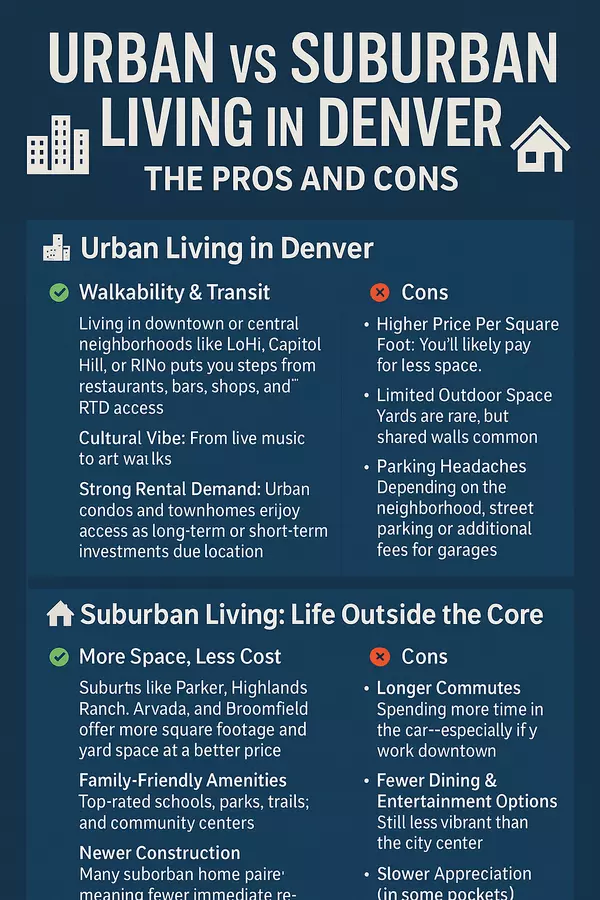The Impact of Interest Rates on Denver's Housing Market

When it comes to the Denver housing market, interest rates play a significant role in shaping buyer behavior, home affordability, and overall market dynamics. With current mortgage interest rates exceeding 7%, the landscape has shifted considerably for buyers and sellers alike. Understanding how these elevated rates impact the real estate market is crucial for making informed decisions.
The Connection Between Interest Rates and Home Affordability
Interest rates directly influence the cost of borrowing money to purchase a home. At over 7%, today’s mortgage rates are significantly higher than they were just a few years ago. This has a dramatic impact on monthly mortgage payments. For instance:
- A $500,000 home with a 30-year fixed mortgage at a 7% interest rate results in a monthly principal and interest payment of approximately $3,327.
- Compare this to a 4% interest rate, which would have resulted in a payment of $2,387.
This stark increase in monthly costs can price many buyers out of the market, especially in Denver where home prices remain elevated.
How Elevated Interest Rates Affect Denver’s Housing Market
In recent years, Denver has seen robust demand for housing, fueled by its thriving job market, desirable lifestyle, and strong population growth. However, with interest rates now above 7%, several key changes are occurring:
-
Significant Cooling of Demand: Higher interest rates have reduced the number of buyers who can qualify for a mortgage, which in turn has decreased competition for homes. This is especially impactful in Denver’s historically competitive market, where bidding wars have become less common.
-
Price Adjustments: As affordability wanes, sellers may need to lower their asking prices or offer incentives to attract buyers. While Denver’s market has historically been resilient, the current environment has introduced new pressures on home values.
-
Increased Rental Demand: With higher borrowing costs, many prospective buyers are delaying their purchases and choosing to rent instead. This shift has driven up demand for rental properties and, in turn, rental prices across the Denver metro area.
The Challenges and Opportunities of High Interest Rates
While elevated interest rates create challenges, they also present opportunities for certain buyers and investors. Sellers may be more open to negotiation, and buyers who can afford the higher rates may face less competition. Additionally, some buyers are exploring creative financing solutions, such as adjustable-rate mortgages or seller buy-down programs, to reduce initial costs.
Tips for Navigating the Current Market
- Work with a Trusted Lender: Understanding your buying power is essential. A good lender can guide you through pre-approval and explore options like rate buydowns or temporary rate reductions.
- Stay Informed: Monitor market updates and economic trends that may signal future changes in interest rates.
- Partner with an Experienced Realtor: A knowledgeable real estate professional can help you navigate Denver’s unique market and identify opportunities in the current climate.
The Importance of Timing
In this high-rate environment, timing and strategy are everything. For buyers, locking in a rate now may protect against further increases, while sellers should be prepared to adapt to market conditions to attract motivated buyers.
Final Thoughts
Interest rates exceeding 7% have reshaped Denver’s housing market, making affordability a key challenge for many buyers. However, the market remains active, with opportunities for those who understand how to navigate the current dynamics. Whether you’re planning to buy, sell, or invest, staying informed about rate trends and their impact on the local market is critical.
If you have questions about how today’s interest rates are influencing Denver's housing market, feel free to reach out. I’m here to help you make the most of your real estate journey.
Categories
Recent Posts










